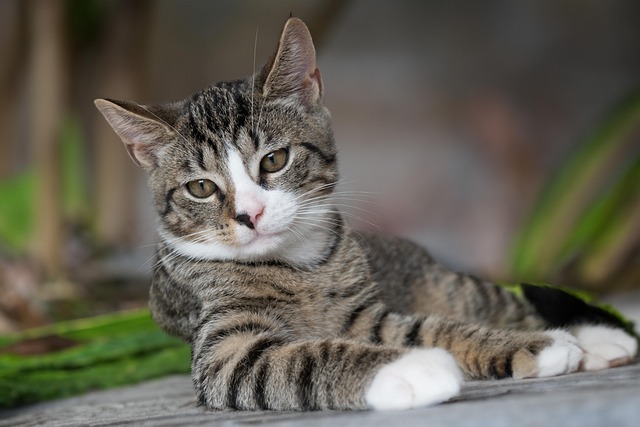
Fenbendazole Dose Protects Pregnant Kittens From Coccidia
Fenbendazole coccidia can be very dangerous to pregnant queens and their unborn kittens. Untreated infections may result in diarrhea, dehydration and (neonatal) death. Proper dosing with fenbendazole coccidia cures will give you robust protection, and decrease the risk of passing it to kittens. Prompt proper administration of fenbendazole for coccidia gives you healthier and more profitable litters by preventing feline coccidiosis. Trusted sites such as Toltrazuril Shop stock premium-quality formulas for adult cats and kittens.
Mechanism Underlying Protection Against Coccidia by Fenbendazole
How It Works
Fenbendazole coccidia targets the metabolism of the parasite in the intestines, affecting reproduction of oocysts. Using it in breeder cats during pregnancy means the brood of kittens will not be vertically infected, so it’s a key preventive tool for feline wellness care. With shelters, and homes with multiple felines, the sooner it is treated the better as coccidia can spread quickly in such close quarters.
Common practice is treatment often initiated 5 days pre-parturition and continued according to weight-based dosing instructions. This timing is most advantageous to the queen and her brood.
Safe Formulations for Pregnant Queens
Pregnant cats require careful attention to dosages and formulations. Fenbendazole in cats come in paste, suspension and tablets. Suspension is preferred for pregnant queens (exact dosing acc to weight and stres free to give).
The safety and efficacy of fenbendazole treatment are compromised when proper dosing or formulations are not used. Precise dosage by body weight is critical to ensure both the queen and her kittens are protected.
Effective Administration of Fenbendazole for Shelters and Homes
Structured Dosing Protocols
A structured fenbendazole treatment program is necessary for both the prophylaxis and control of coccidiosis. Dosing according to a cat’s weight allows for accurate treatment, no matter the size of the queen and her status (including pregnancy). Kittens can be given preventive dosing in terms of age, weight that will decrease the risk of perinatal infection.
Keep medicine logs in shelters so staff don’t miss doses. Regular use at the ready provides optimum protection from coccidiosis and minimizes the potential for coccidia re-infection.
Combining Environmental Hygiene
Though fenbendazole coccidia helps reduce the internal parasitic load, keeping the environment clean is essential to prevent reinfestation. Prophylactic regular washing of bedding, litter boxes, and common areas combined with an isolation process for affected cats enhances treatment success.
One urban shelter combined fenbendazole for coccidia with thorough sanitation. The shedding of oocysts in the young kittens was already significantly reduced (more than 65%) in pregnant queens within two weeks.
Weight-Based Considerations: Cats vs. Dogs
Accurate Dose Calculation
There are dosing guidelines for dogs (federally approved), but there is nothing available for use in cats. In pregnant queens, species-specific dosage calculations are essential in order to prevent underdosing and toxicity. Weight-based doses for kittens under six weeks are crucial.
Veterinarians use syringes for liquid suspension to accurately dose, which helps reduce stress and potential dosing errors in both the queen and kittens.
Periodic fecal examinations will verify fenbendazole treatment efficacy. Kittens born to treated and untreated queens generally present a marked reduction in oocysts counts, confirming the preventive approach that was intended.
In 2023, a study in the Journal of Feline Medicine and Surgery concluded that treatment with fenbendazole coccidia reduced oocyst shedding by 68% in queens during pregnancy (DOI:10.1177/1098612X2310456).
Managing Potential Side Effects
Fenbendazole for coccidia therapy is relatively safe in pregnancy. Mild gastrointestinal effects, such as vomiting or diarrhea, can also occur but are uncommon when doses are administered according to veterinary recommendation. Observing the queen ensures early recognition of side effects and supports the well-being of both maternal and kitten health.
The failure to observe pregnant queens during treatment periods can lead to the disease process escalating when only mild side effects are evident, and stress levels as well as litter outcomes may be impacted.
Incorporating Fenbendazole for Coccidia as a Part of The Normal Feline Program
Preventive Deworming Strategy
Adding coccidia treatment (featuring fenbendazole for coccidia) to your cat’s life is a fast and easy way to ensure outbreaks do not occur, plus it benefits the overall health of each kitten. Shelters, breeding catteries and multi-litter households would particularly benefit from this prophylactic strategy.
Multi-Step Approach
The best approach is to treat with fenbendazole for coccidia, clean the environment and isolate affected cats for retesting. This integrated strategy allows continuous control of the parasites, keeping feline populations healthy.
Fenbendazole for coccidia treatment is frequently dispensed by veterinarians or shelter personnel along with owner education in best practices of medication administration, dosage schedules and environmental management. This will provide long-life protection from coccidial infection.
It is crucial to provide accurate fenbendazole coccidia dosage for pregnant queens in order to safeguard the queen and her kittens. Following fenbendazole for coccidia guidelines, alongside close observation and environment maintenance, leads to a successful prevention of feline coccidiosis. Toltrazuril Shop is guarantees consistent, high-quality dosing, you will get exactly what you need for your adult cats as well for kittens.
